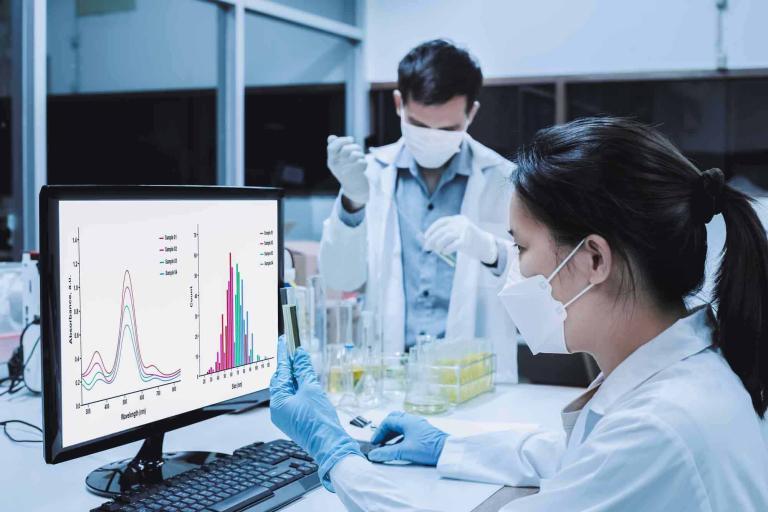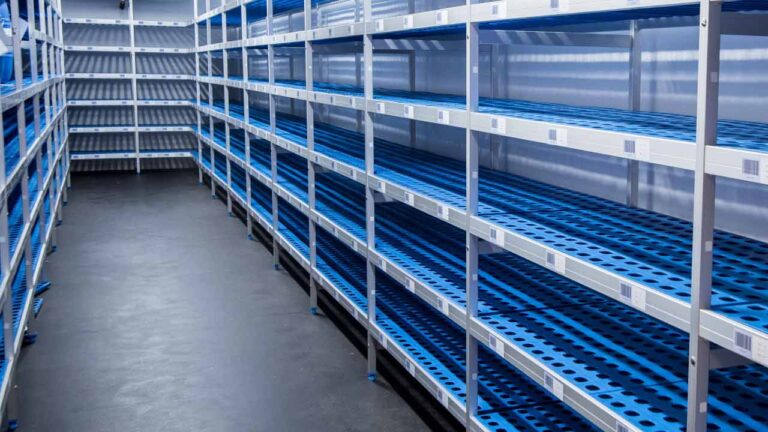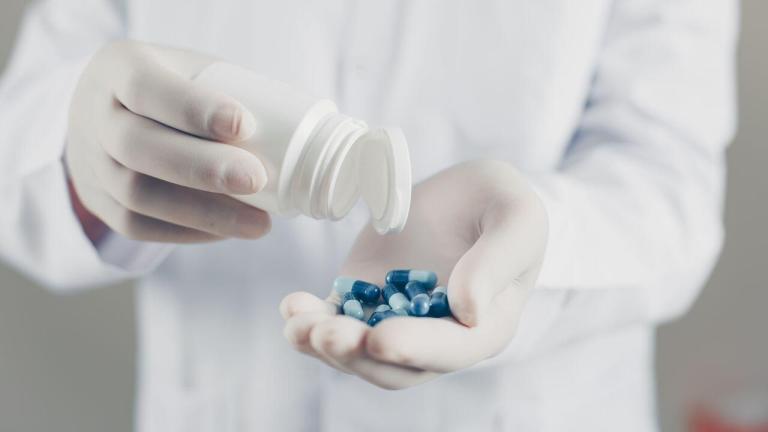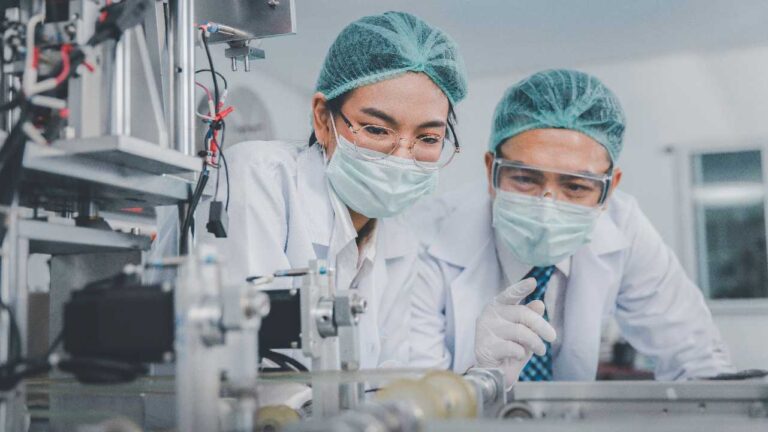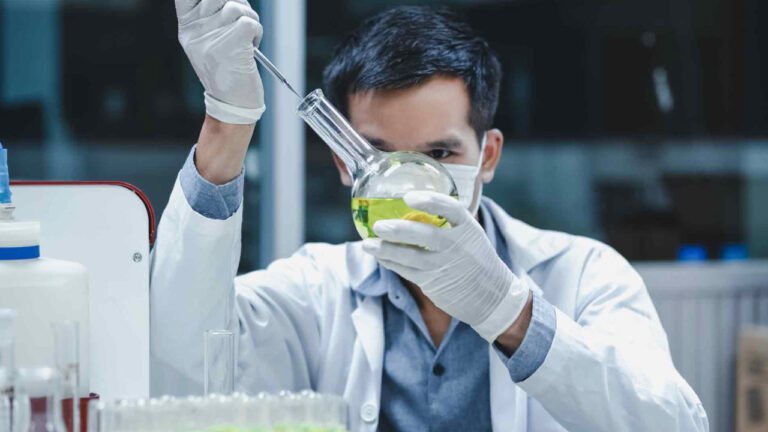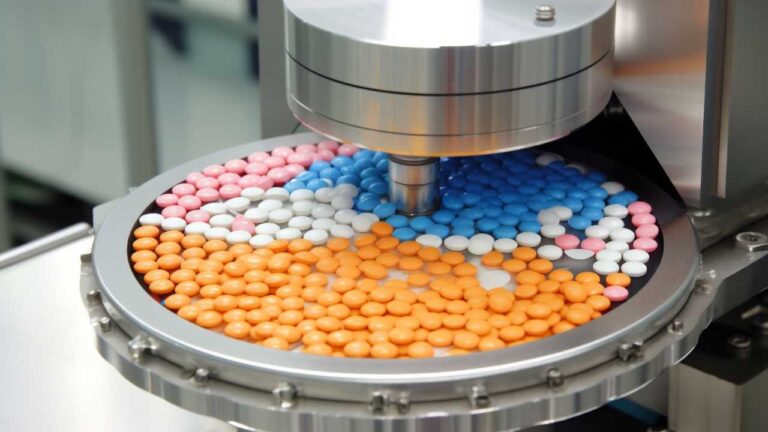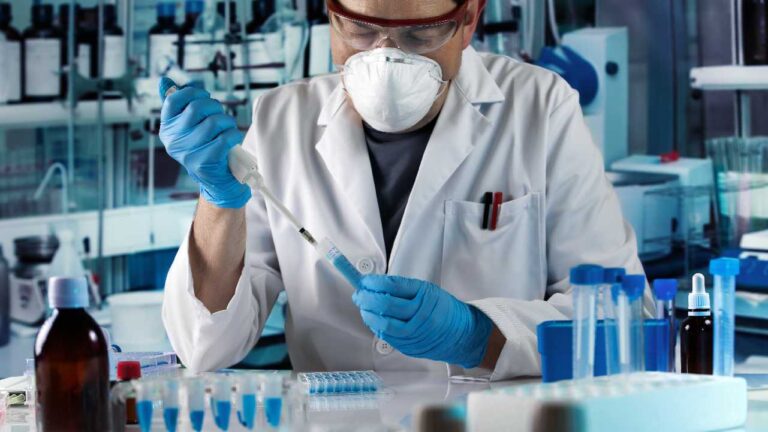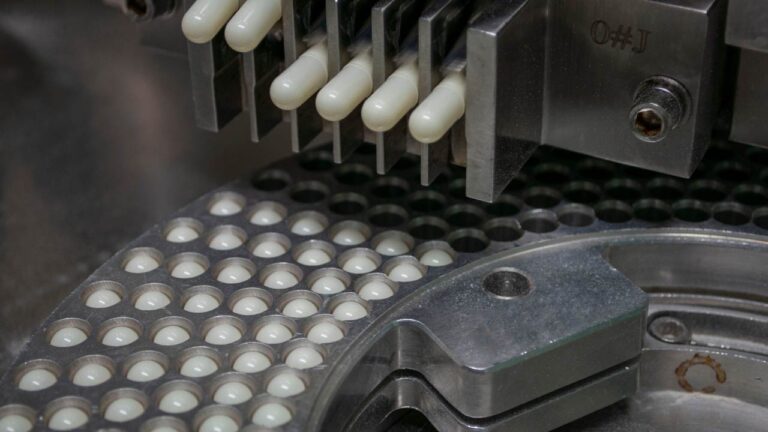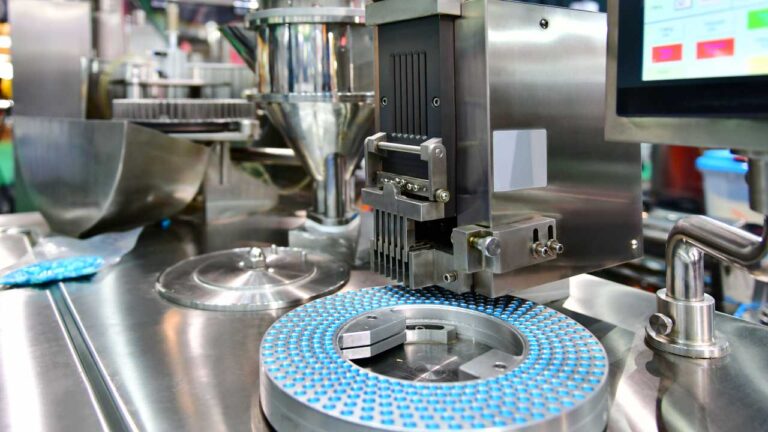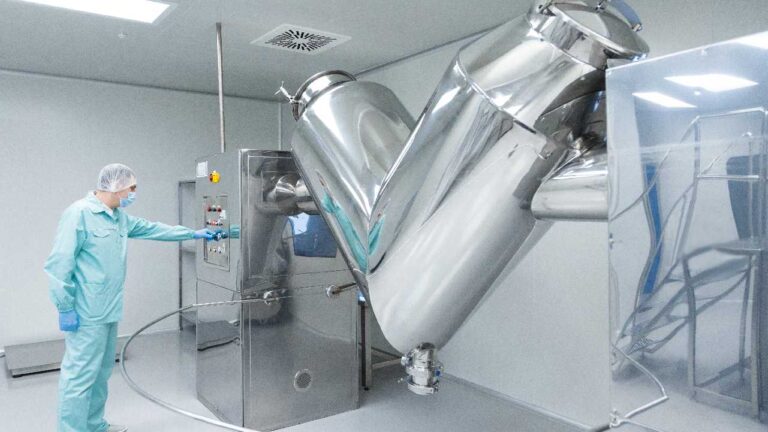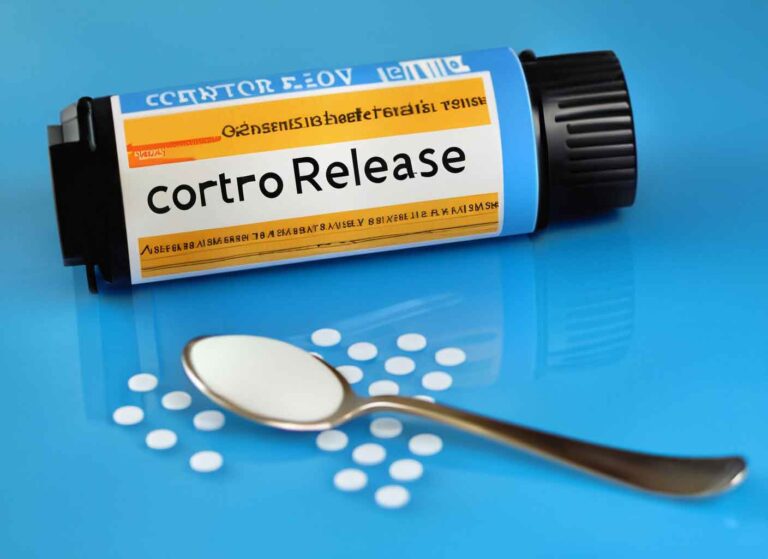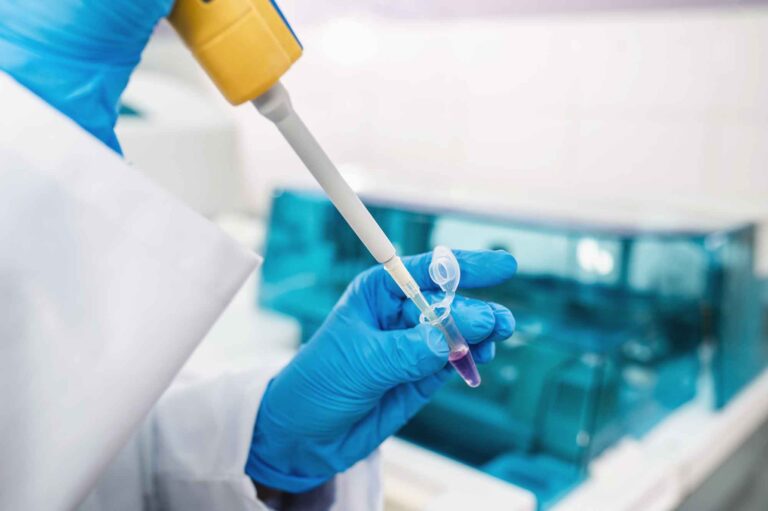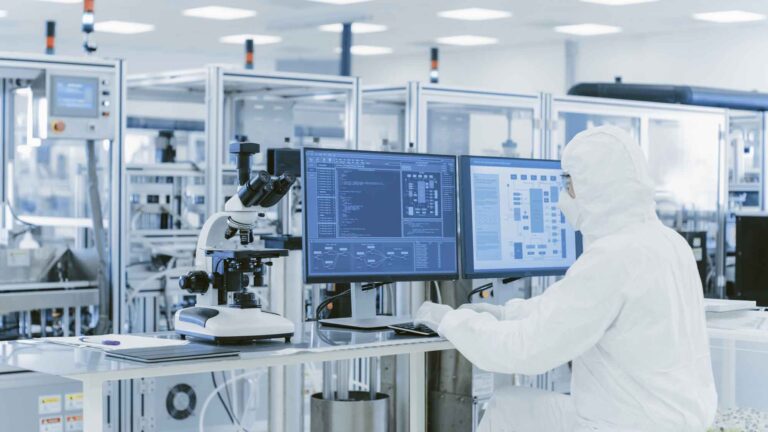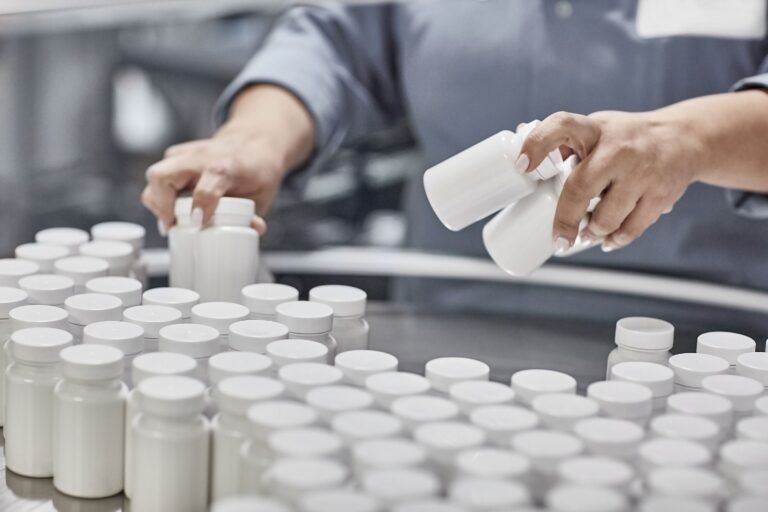Phase 1 clinical trials are the first stage of testing in human subjects and are primarily concerned with assessing the safety, tolerability, pharmacokinetics, and pharmacodynamics of a drug. This phase involves a small number of healthy volunteers or patients, and it aims to find the optimal dose of the drug that can be given safely without serious side effects. The purpose is to establish a safe dosage range and identify side effects to determine if the drug can move on to further testing in Phase 2 trials. Phase 1 is crucial as it helps to set the foundation for the drug’s future development and use.
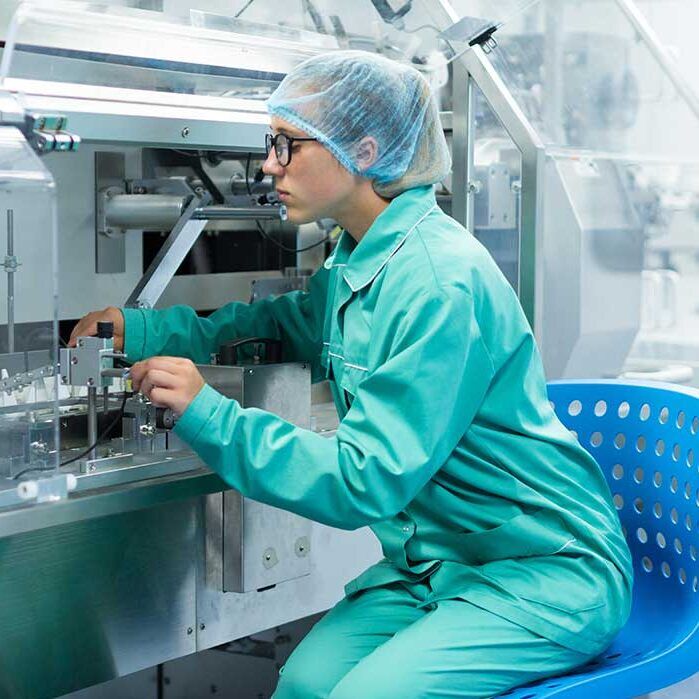
Formulation And Manufacturing For Phase 1 of Clinical Trials
We offer a unique advantage in Phase 1 Clinical Manufacturing. We can develop a formulation specifically designed to achieve your targets during the crucial first clinical evaluations of your Active Pharmaceutical Ingredient (API).
Our team is skilled in providing the formulation’s clinical supplies in the most appropriate form. This is likely to be either a simple powder-in-capsule dose or powder in a bottle ready for reconstitution prior to dosing. This flexibility allows us to cater to the specific needs of your Phase 1 trial.
We recommend that you utilize well-proven early-stage manufacturing technologies, including:
- Filling neat API into bottles or capsules ready for Phase I trials.
- Providing the formulated drug in a bottle, in a form designed to offer improved reconstitution and solubility.
For these or any other systems you require, we will provide all of the analytical, preformulation, and formulation data necessary for your clinical trial. Our aim is to rapidly and cost-effectively supply you with a product that maximizes the chances of the early clinical evaluation being successful. We also ensure that you are provided with all the information and data required for your Investigational Medicinal Product Dossier (IMPD) submission.
We Follow All FDA Recommendations for cGMP Phase 1 Manufacturing
In line with the FDA’s Guidance for Industry CGMP for Phase 1 Investigational Drugs, we adhere to several recommendations for the manufacturers of Phase 1 clinical trial materials:
Personnel
Our personnel involved in the manufacturing process have adequate education, experience, and training to carry out their roles, including knowledge of QC principles and the statutory requirements of cGMP.
QC Function
We have a written plan that outlines the role and responsibilities of QC functions. This plan addresses:
- Protocols for examining materials used in Phase 1 Clinical Manufacturing
- The review and approval of manufacturing and testing procedures, along with acceptance criteria
- Responsibility for releasing or rejecting each batch of a Phase 1 drug based on cumulative QC review
- Protocols for investigating errors or unexpected results that occur during the manufacturing process or for complaints received
Facility and Equipment
Our facilities used for manufacturing Phase 1 investigational products have appropriate work areas and equipment. This includes:
- Adequate space, clean environment, and appropriate construction
- Proper ventilation, lighting, heating, cooling, plumbing, washing, and sanitation
- Appropriate air handling systems to maintain necessary air cleanliness classification
- Equipment that will not contaminate, react with, add to, or be absorbed by a drug
- Properly cleaned and maintained equipment
Control of Components, Containers, and Closure
All components, containers, and closures used to manufacture a Phase 1 drug are subject to clear written procedures that describe proper handling, review, acceptance, and control. A log book is used to record receipt date, quantity, supplier’s name, material lot number, storage conditions, and expiration date of materials.
Manufacturing and Records
Diligent record-keeping is vital during Phase 1 Manufacturing. Records are kept to detail the materials, equipment, procedures followed, and problems encountered during manufacturing. They also keep track of changes in procedures and processes for subsequent batches and outline the microbiological controls implemented for sterile-processed Phase 1 investigational drugs.
Laboratory Controls
Laboratory controls include testing materials, in-process materials, packaging, and drug products, along with stability studies of Phase 1 investigational drugs once manufactured. Tests are performed under controlled conditions, follow written procedures, and results are recorded. Representative samples from each batch are retained and stored for at least two years after a clinical trial is terminated or an IND application is withdrawn.
Packaging, Labeling, and Distributing
Phase 1 materials are packaged to protect them from contamination, tampering, and damage during storage, handling, and shipment.
Recordkeeping
Finally, we keep detailed records regarding the quality and operation of Phase 1 Clinical Manufacturing process, including:
- Equipment maintenance and calibration
- Manufacturing records and related analytical test records
- Distribution records
- QC functions
- Component records
- Deviations and investigations
- Complaints
Our Services
FAQs
Here are some frequently asked questions about Early Phase
During Phase 1 clinical trials, we play a critical role by:
- Conducting Preformulation Studies: These are essential to understand the drug’s physical and chemical properties, which inform the formulation strategy.
- Developing Formulations: Creating stable and effective dosage forms that are crucial for the success of early-stage clinical trials.
- Establishing Analytical Methods: Ensuring the drug product meets stringent quality standards, which is vital for regulatory approval.
- Manufacturing Clinical Trial Materials: Producing small-scale batches for Phase 1 trials, adhering to Good Manufacturing Practices (GMP) to ensure safety and quality.
- Providing Regulatory Support: Offering expertise to navigate the complex regulatory requirements specific to Phase 1 trials, including documentation and compliance strategies.
Our expertise in formulation development is multifaceted, encompassing:
- Advanced Drug Delivery Systems: Tailoring the method of drug administration to enhance patient compliance and drug effectiveness.
- Solving Solubility and Stability Issues: Utilizing cutting-edge technologies and innovative approaches to overcome common challenges in drug formulation.
- Enhancing Bioavailability: Implementing strategies to ensure the drug is absorbed effectively in the body, which is crucial for therapeutic efficacy.
Ensuring the quality of clinical trial materials is a top priority for us, achieved through:
- Robust Quality Management Systems: These systems are designed to uphold the highest standards of quality throughout the manufacturing process.
- GMP Compliance: Adhering to GMP regulations is non-negotiable, ensuring that products are consistently produced and controlled according to quality standards.
- Comprehensive Analytical Testing: Rigorous testing protocols are in place to confirm the identity, purity, potency, and stability of the clinical trial materials.
Scaling up from Phase 1 to subsequent trial phases is a complex process that we are well-equipped to handle, thanks to:
- Scalable Processes: Designed to be adaptable, these processes can transition from small-scale production for Phase 1 to larger scales for subsequent phases.
- Tech Transfer Capabilities: The ability to transfer technology efficiently is crucial for scaling up production without compromising quality or timelines.
- Supply Chain Management: A robust supply chain is essential to ensure the availability of high-quality raw materials and components as production scales up.
We comprehensive regulatory support including:
- Documentation Preparation: Investigational New Drug (IND) applications and other regulatory documents that are critical for initiating clinical trials.
- Strategic Regulatory Guidance: Developing and implementing regulatory strategies that align with the guidelines of the FDA and other regulatory bodies, ensuring a smooth and compliant trial process.
- Compliance Consultation: Providing expert advice and consultation to ensure all regulatory requirements are met, which is essential for the successful progression of clinical trials.
Project management for Phase 1 trials involves:
- Dedicated Project Teams: These teams are committed to the success of your project, with a focus on meeting your specific needs.
- Effective Communication: Keeping lines of communication open and transparent to ensure that all stakeholders are aligned and informed.
- Timeline Management: Strict adherence to project timelines is essential to meet the critical milestones of Phase 1 trials.
A CDMO’s manufacturing process is tailored to meet the unique requirements of Phase 1 trials through:
- Customized Manufacturing Processes: Tailoring manufacturing processes to fit the specific needs of each trial, ensuring the production of trial materials that meet all therapeutic and regulatory requirements.
- Rapid Production Capabilities: The ability to produce trial materials quickly and efficiently is essential to meet the often tight schedules of Phase 1 trials.
- High Precision: Ensuring that each batch of trial materials is produced with the utmost accuracy and consistency.
- Specialized Equipment and Facilities: To accommodate the unique requirements of complex formulations, including those that require containment.
- Expert Personnel: Teams of highly skilled professionals with extensive experience in addressing the challenges of complex drug development.
- Innovative Techniques and Technologies: Employing the latest techniques and technologies to effectively manage the unique properties of complex drug molecules, ensuring their stability, efficacy, and safety.
The analytical capabilities of a CDMO are critical for:
- Method Validation: Ensuring that the analytical methods used are reliable and reproducible.
- Stability Studies: Conducting thorough stability studies to assess how the drug maintains its integrity over time, which is crucial for determining appropriate storage conditions and shelf life.
- Release Testing: Performing meticulous release testing to verify that each batch of the drug product meets all specified criteria before it is released for use in clinical trials.
Our contribution to the success of your Phase 1 clinical trials is multifaceted, including:
- Proactive Risk Management: Identifying potential issues early in the development process and implementing strategies to mitigate these risks.
- Resource Optimization: Streamlining development processes to maximize resource utilization and minimize costs, without compromising quality or safety.
- Strategic Expertise: Leveraging extensive industry experience to provide strategic insights and best practices that can significantly enhance the drug development process.


